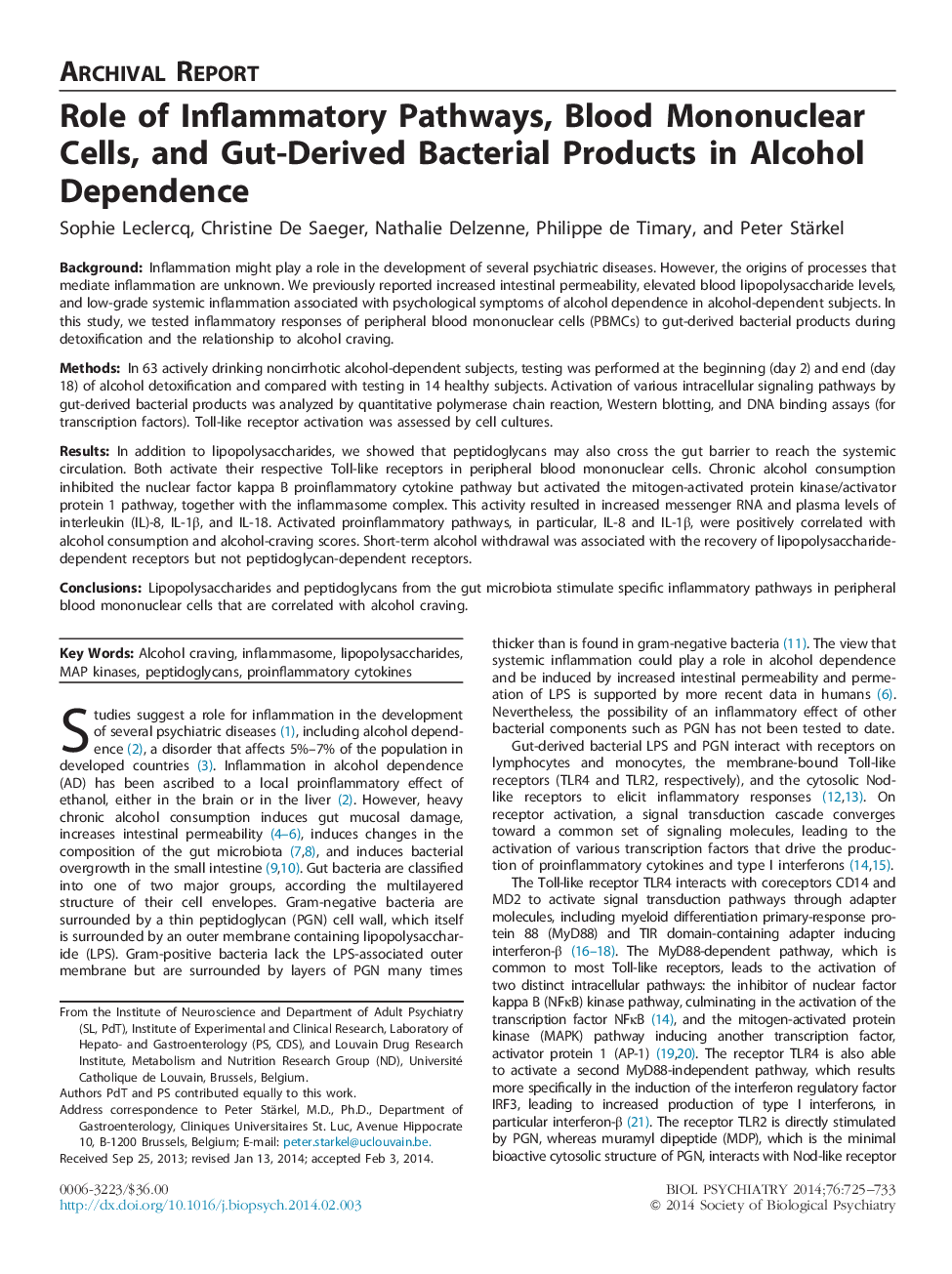| کد مقاله | کد نشریه | سال انتشار | مقاله انگلیسی | نسخه تمام متن |
|---|---|---|---|---|
| 6227150 | 1276432 | 2014 | 9 صفحه PDF | دانلود رایگان |
BackgroundInflammation might play a role in the development of several psychiatric diseases. However, the origins of processes that mediate inflammation are unknown. We previously reported increased intestinal permeability, elevated blood lipopolysaccharide levels, and low-grade systemic inflammation associated with psychological symptoms of alcohol dependence in alcohol-dependent subjects. In this study, we tested inflammatory responses of peripheral blood mononuclear cells (PBMCs) to gut-derived bacterial products during detoxification and the relationship to alcohol craving.MethodsIn 63 actively drinking noncirrhotic alcohol-dependent subjects, testing was performed at the beginning (day 2) and end (day 18) of alcohol detoxification and compared with testing in 14 healthy subjects. Activation of various intracellular signaling pathways by gut-derived bacterial products was analyzed by quantitative polymerase chain reaction, Western blotting, and DNA binding assays (for transcription factors). Toll-like receptor activation was assessed by cell cultures.ResultsIn addition to lipopolysaccharides, we showed that peptidoglycans may also cross the gut barrier to reach the systemic circulation. Both activate their respective Toll-like receptors in peripheral blood mononuclear cells. Chronic alcohol consumption inhibited the nuclear factor kappa B proinflammatory cytokine pathway but activated the mitogen-activated protein kinase/activator protein 1 pathway, together with the inflammasome complex. This activity resulted in increased messenger RNA and plasma levels of interleukin (IL)-8, IL-1β, and IL-18. Activated proinflammatory pathways, in particular, IL-8 and IL-1β, were positively correlated with alcohol consumption and alcohol-craving scores. Short-term alcohol withdrawal was associated with the recovery of lipopolysaccharide-dependent receptors but not peptidoglycan-dependent receptors.ConclusionsLipopolysaccharides and peptidoglycans from the gut microbiota stimulate specific inflammatory pathways in peripheral blood mononuclear cells that are correlated with alcohol craving.
Journal: Biological Psychiatry - Volume 76, Issue 9, 1 November 2014, Pages 725-733
